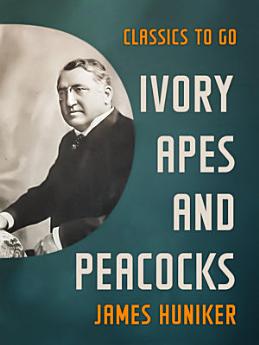Ivory, Apes and Peacocks
Mar 2019 · Otbebookpublishing
Ebook
211
Pages
family_home
Eligible
info
reportRatings and reviews aren’t verified Learn More
About this ebook
About the author
James Gibbons Huneker (1857-1921) was an American critic, essayist, and journalist whose vibrant prose and keen insights left an indelible mark on the cultural landscape of his time. Born in Philadelphia, Huneker initially pursued a career in law but soon found his true calling in the arts. He studied piano in Europe, which profoundly influenced his later work as a music critic.Huneker's literary contributions spanned various genres, including music, literature, and visual arts. He wrote for prominent publications such as the New York Sun and the New York Times, where his reviews and essays showcased his eclectic tastes and deep knowledge. His writing was characterized by a lively, often flamboyant style that captivated readers and critics alike.One of the most intriguing aspects of Huneker's career was his role as a cultural mediator. He introduced American audiences to European modernist movements, championing the works of composers like Richard Wagner and Claude Debussy, as well as writers such as Henrik Ibsen and August Strindberg. His advocacy for these revolutionary artists often placed him at odds with more conservative critics, sparking lively debates that enriched the cultural discourse of the period.Huneker's influence extended to contemporary writers and artists, including Theodore Dreiser and H.L. Mencken, who admired his fearless criticism and broad intellectual curiosity. Despite facing controversies for his outspoken views, Huneker remained a steadfast advocate for artistic innovation and freedom of expression.In an era of rapid cultural change, James Huneker stood out as a dynamic and influential figure whose legacy continues to inspire modern readers and critics. His life and work offer a fascinating glimpse into the vibrant artistic milieu of the late 19th and early 20th centuries.
Rate this ebook
Tell us what you think.
Reading information
Smartphones and tablets
Install the Google Play Books app for Android and iPad/iPhone. It syncs automatically with your account and allows you to read online or offline wherever you are.
Laptops and computers
You can listen to audiobooks purchased on Google Play using your computer's web browser.
eReaders and other devices
To read on e-ink devices like Kobo eReaders, you'll need to download a file and transfer it to your device. Follow the detailed Help Center instructions to transfer the files to supported eReaders.






